I have an issue trying to retrieve all results from a join. I have set up a similar scenario in SQL fiddle and it works but in SQL Server it doesn't. I want to bring results for everything if they're either invoiced or shipped.
The result i am getting in SQL-SERVER is
| No | Order1 | Shipdate | No | Order1 | InvDate |
|-----|--------|----------|--------|--------|----------|
| 111 | 222 | 17-01-18 | 111 | 222 | 24-01-18 |
| 222 | 333 | 18-01-18 | 222 | 333 | 24-01-18 |
Even if the change the join to full outer, right join i still get this result.
I would have thought if i use full outer it will bring all the results back regardless of matches but it doesnt.
What am i missing to give me the full outer result? Thanks
sql fiddle - http://sqlfiddle.com/#!18/89943/1

